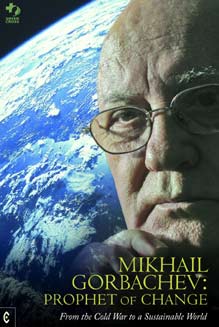Search results for climate change (164)
Climate Change, Food Sovereignty & Security
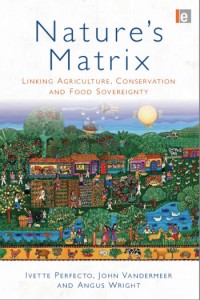
www.oneclimate.net Food security refers to the availability of food and one’s access to it. A household is considered food-secure when its occupants do not live in hunger or fear of starvation. According to the World Resources Institute, global per capita food production has been increasing substantially for the past several decades. In 2006, MSNBC reported that globally, the number of people who are overweight has surpassed the number who are undernourished – the world had more than one billion people who were overweight, and an estimated 800 million who were undernourished. According to a 2004 article from the BBC, China, the world’s most populous country, is suffering from an obesity epidemic. In India, the second-most populous country in the world, 30 million people have been added to the ranks of the hungry since the mid-1990s and 46% of children are underweight.
www.1billionhungry.org Worldwide around 852 million people are chronically hungry due to extreme poverty, while up to 2 billion people lack food security intermittently due to varying degrees of poverty (source: FAO, 2003). Six million children die of hunger every year – 17,000 every day. As of late 2007, export restrictions and panic buying, US Dollar Depreciation,increased farming for use in biofuelsworld oil prices at more than $100 a barrel, global population growth,climate change,loss of agricultural land to residential and industrial development,and growing consumer demand in China and Indiaare claimed to have pushed up the price of grain. However, Nonetheless, food riots have recently taken place in many countries across the world. Read More: > HERE <
As the Nobel Prize-winning economist Amartya Sen has observed that „there is no such thing as an apolitical food problem.“ While drought and other naturally occurring events may trigger famine conditions, it is government action or inaction that determines its severity, and often even whether or not a famine will occur. The 20th century is full of examples of governments undermining the food security of their own nations–sometimes intentionally.
There are many economic approaches advocated to improve food security in developing countries. Three typical approaches are listed below, click here . The first is typical of what is advocated by most governments and international agencies. The other two are more common to non-governmental organizations (NGO’s).
The third approach is known as food sovereignty; though it overlaps with food justice on several points, the two are not identical. It views the business practices of multinational corporations as a form of neocolonialism click here.
It contends that multinational corporations have the financial resources available to buy up the agricultural resources of impoverished nations, particularly in the tropics. They also have the political clout to convert these resources to the exclusive production of cash crops click here ,for sale to industrialized nations outside of the tropics, and in the process to squeeze the poor off of the more productive lands. Under this view subsistence farmers are left to cultivate only lands that are so marginal in terms of productivity as to be of no interest to the multinational corporations. Likewise, food sovereignty holds it to be true that communities should be able to define their own means of production and that food is a basic human right.
With several multinational corporations now pushing agricultural technologies on developing countries, technologies that include improved seeds, chemical fertilizers, and pesticides, crop production has become an increasingly analyzed and debated issue. Many communities calling for food sovereignty are protesting the imposition of Western technologies on to their indigenous systems and agency.
Those who hold a „food sovereignty“ position advocate banning the production of most cash crops in developing nations, thereby leaving the local farmers to concentrate on subsistence agriculture. In addition, they oppose allowing low-cost subsidized food from industrialized nations into developing countries, what is referred to as „import dumping“. Import dumping also happens by way of food aid distribution through programs like the USA’s „Food for Peace“ initiative.
www.fao.org , www.vandanashiva.org Vandana Shiva (Hindi: वन्दना शिवा; b. November 5, 1952, Dehra Dun, Uttarakhand, India), is a philosopher, environmental activist, eco feminist and author of several books. Shiva, currently based in Delhi, is author of over 300 papers in leading scientific and technical journals. She received her Ph.D. in philosophy from the University of Western Ontario, Canada, in 1978 with the doctoral dissertation:“Hidden variables and locality in quantum theory. Read More: > HERE < , Food Commodities Speculation and Food Price Crises http://www.srfood.org
Food Security Guide – Over one billion people experience the hardship that hunger imposes, a figure which continues to rise even amidst the riches of the 21st century. Engulfed within a vortex of population growth, economic instability and climate change, food security has become an urgent challenge for national and global governance. However, the feeble outcome of the 2009 World Summit on Food Security suggests that the richer countries are not yet ready to reorganise their dysfunctional priorities. http://uk.oneworld.net/guides/food
WASHINGTON (MarketWatch) — Those of us who believe that the economy should serve us instead of the other way around are conflicted. We know that the only way to end unemployment at home and poverty around the world is to make the economy grow faster. But we also know that nothing can grow forever, that the faster the global economy grows, the sooner we’ll run out of essential resources, including fossil fuels, water, arable land, healthy ecosystems and moderate climate. Economists and politicians can’t admit it, but the laws of physics apply, no matter what the latest polls tell us. The Earth has finite resources that will someday limit our economic growth.
The Earth cannot forever support 7 billion people consuming as much as Americans consume. And yet we’ve staked our future — individually, nationally, and maybe even as a species — on that impossible dream.
SOLUTIONS – Prosperity Without Growth, Professor Tim Jackson: Growth has delivered its benefits, at best, unequally. A fifth of the world’s population earns just 2% of global income. Inequality is higher in the OECD nations than it was 20 years ago. And while the rich got richer, middle-class incomes in Western countries were stagnant in real terms long before the recession. Far from raising the living standard for those who most needed it, growth let much of the world’s population down. Wealth trickled up to the lucky few.
Accordingly, this report sets out a critical examination of the relationship between prosperity and growth. It acknowledges at the outset that poorer nations stand in urgent need of economic development. But it also questions whether ever-rising incomes for the already-rich are an appropriate goal for policy in a world constrained by ecological limits. Its aim is not just to analyse the dynamics of an emerging ecological crisis that is likely to dwarf the existing economic crisis. But also to put forward coherent policy proposals that will facilitate the transition to a sustainable economy. In short, this report challenges the assumption of continued economic expansion in rich countries and asks: is it possible to achieve prosperity without growth?
In short, a ‘green stimulus’ is an eminently sensible response to the economic crisis. It offers jobs and economic recovery in the short term, energy security and technological innovation in the medium term, and a sustainable future for our children in the long term. Nonetheless, the default assumption of even the ‘greenest’ Keynesian stimulus is to return the economy to a condition of continuing consumption growth. Since this condition is unsustainable, it is difficult to escape the conclusion that in the longer term something more is needed. A different kind of macro-economic structure is essential for an ecologically-constrained world.
The above is an excerpt www.ecobuddhism.org : The full report can be downloaded here .
Available in PDF: New briefing: Food safety for whom? Corporate wealth versus people’s health by GRAIN, May 2011, further informations: www.corpwatch.org
A new briefing by GRAIN examines how „food safety“ is being used as a tool to increase corporate control over food and agriculture, and discusses what people can do and are doing about it. Below is a snapshot of what’s inside. The full briefing is available here.
View some additional photos here.
Africa – Green Agriculture & Climate Change
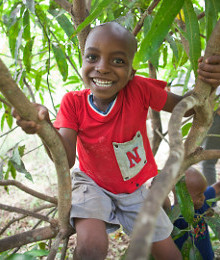
http://kofiannanfoundation.org
Sustainable agriculture is the practice of farming using principles of ecology, the study of relationships between organisms and their environment. It has been defined as „an integrated system of plant and animal production practices having a site-specific application that will, over the long term:Satisfy human food and fiber needs Make the most efficient use of non-renewable resources and on-farm resources and integrate, where appropriate, natural biological cycles and controls Sustain the economic viability of farm operations Enhance the quality of life for farmers and society as a whole. Read More: > Here <
Fair trade is an organized social movement and market-based approach that aims to help producers in developing countries make better trading conditions and promote sustainability. The movement advocates the payment of a higher price to producers as well as social and environmental standards. It focuses in particular on exports from developing countries to developed countries, most notably handicrafts, coffee, cocoa, sugar, tea, bananas, honey, cotton, wine, fresh fruit, chocolate, flowers and gold. Read More: > HERE <
AGRA ALLIANCE works to achieve a food secure and prosperous Africa through the promotion of rapid, sustainable agricultural growth based on smallholder farmers. Smallholders–the majority women–produce most of Africa’s food, and do so with minimal resources and little government support. AGRA aims to ensure that smallholders have what they need to succeed: good seeds and healthy soils; access to markets, information, financing, storage and transport; and policies that provide them with comprehensive support. Through developing Africa’s high-potential breadbasket areas, while also boosting farm productivity across more challenging environments, AGRA works to transform smallholder agriculture into a highly productive, efficient, sustainable and competitive system, and do so while protecting the environment.
AFRICA LOSES ROUGHLY $4 Billion in soil nutrients each year, costing farmers in lost productivity and eroding the continent’s ability to feed itself. But simple solutions can reverse the trend. AGRA’s programs in soil health are working to restore 6.3 million hectares of degraded farmland over 10 years. Whether it’s setting Africa’s first digital soil map to monitor the problem and inform decision making or promoting the use of lime to counteract western Kenya’s acidic soils or increasing the use of fertilizer microdosing by farmers in the Sahel, AGRA is focused on stemming the crisis and transforming Africa’s soils form a curse into blessing for smallholder farmers.
www.globalhealthfreedom.org www.foodfreedomejournal.org
Father Godfrey Nzamujo is the founder and director of the Songhai Centre, a pioneering farm, training and research centre in Porto Novo, Benin. Begun in 1985 on a single hectare of land, the Songhai project has expanded to six sites in Benin and one in Nigeria. With the motto ‚Commitment to Excellence‘, Songhai symbolises Nzamujo’s belief that Africa’s ecological characteristics are advantages rather than impediments. Father Nzamujo was awarded the Hunger Project’s Africa Prize for Leadership in 1993, and is the author of Songhaï: When Africa lifts up its head. Stirring revolution in African Rice: www.new-ag.info
Songhaï aspires to develop alternatives allowing Africans to stand on their feet through agricultural entrepreneurship, in an integrated development framework enhancing agriculture, industry and services. This development is centred, above all, on human development, the realization of local resources and the appropriation of foreign techniques and technologies.
VISION To establish an entrepreneurial platform of integrated development, an enabling environment to find social, economic, technical, organizational solutions that will take Africans out of poverty, pulling them towards autonomy and sustainable socioeconomic development.
VOCATION To draw Africa into a development mentality which consists in developing new strengths in spite of socioeconomic, cultural and environmental constraints.
COP 16 Climate Change and Agrar Solutions
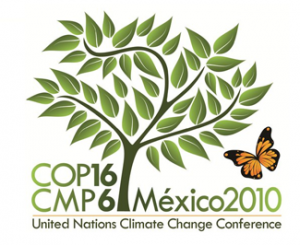
Kofi Atta Annan (born 8 April 1938) is a Ghanaian diplomat who served as the seventh Secretary-General of the United Nations from 1 January 1997 to 31 December 2006. Annan and the United Nations were the co-recipients of the 2001 Nobel Peace Prize for his founding the Global AIDS and Health Fund to support developing countries in their struggle to care for their people. Read More: > HERE <
The 2010 United Nations Climate Change Conference is being held in Cancún, Mexico, from 29 November to 10 December 2010.[1] The conference is officially referred to as the 16th session of the Conference of the Parties (COP 16) to the United Nations Framework Convention on Climate Change (UNFCCC) and the 6th session of the Conference of the Parties serving as the meeting of the Parties (CMP 6) to the Kyoto Protocol.In August 2010, Ban Ki-moon stated that he doubts member states will reach a new global agreement to address global warming, but after the Tianjin talks in October Christiana Figueres, executive secretary of the UN Framework Convention on Climate Change (UNFCCC), said, „This week has got us closer to a structured set of decisions that can be agreed in Cancun … This is the greatest societal and economic transformation that the world has ever seen.“ Read More: > HERE <
AGRA www.agra-alliance.org works to achieve a food secure and prosperous Africa through the promotion of rapid, sustainable agricultural growth based on smallholder farmers. Smallholders–the majority women–produce most of Africa’s food, and do so with minimal resources and little government support. AGRA aims to ensure that smallholders have what they need to succeed: good seeds and healthy soils; access to markets, information, financing, storage and transport; and policies that provide them with comprehensive support.
Through developing Africa’s high-potential breadbasket areas, while also boosting farm productivity across more challenging environments, AGRA works to transform smallholder agriculture into a highly productive, efficient, sustainable and competitive system, and do so while protecting the environment.
www.google.com/cop15 Learn about the impacts of our changing climate, and how groups are working to cope with them.
http://www.ienearth.org Established in 1990 within the United States, IEN was formed by grassroots Indigenous peoples and individuals to address environmental and economic justice issues (EJ). IEN’s activities include building the capacity of Indigenous communities and tribal governments to develop mechanisms to protect our sacred sites, land, water, air, natural resources, health of both our people and all living things, and to build economically sustainable communities.IEN accomplishes this by maintaining an… (read more)Mission:In 1991, near the sacred Bear Butte in South Dakota, near 500 Native people came together at the outdoor 2nd Annual IEN Protecting Mother Earth gathering. At this gathering, this Unifying Principle and the Environmental Code of Ethics were written.
Mission Statement – The Indigenous Peoples of the Americas have lived for over 500 years in confrontation with an immigrant society that holds an opposing world view. As a result we are now facing an environmental crisis which threatens the survival of all natural life. In 1991, near the sacred Bear Butte in South Dakota, near 500 Native people came together at the outdoor 2nd Annual IEN Protecting Mother Earth gathering. At this gathering, this Unifying Principle and the Environmental Code of Ethics were written.
Unifying Principles – The Indigenous Peoples of the Americas have lived for over 500 years in confrontation with an immigrant society that holds an opposing world view. As a result we are now facing an environmental crisis which threatens the survival of all natural life. We believe in unified action, sharing of information, and working together with mutual respect. We recognize we must assert our sovereignty and jurisdictional rights through the application of our traditional laws and recognizing our traditional forms of leadership of our indigenous nations. We stand on principles of empowering and supporting each other to take direct, informed action and affect our ability to protect our lands from contamination and exploitation. By attempting to fulfill our responsibility to defend our mother earth we are assuring the survival of our unborn generations.The members of IEN are unified in our recognition that the traditional teachings, lifestyles, spirituality, cultures and leadership of our people as well as the survival of our future generations, are entirely dependent upon our respectful relationship with the natural world and our responsibility to the sacred principles given to us by the creator.
„SNAP-SHOT“ of environmental and economic justice issues in indigenous lands (US-CANADA): 1. Toxic contaminants, agricultural pesticides and other industrial chemicals that disproportionately impact Indigenous peoples, especially subsistence and livestock cultures.2. Inadequate governmental environment and health standards and regulations.3. Clean up of contaminated lands from mining, military, and other industry activities.4. Toxic incinerators and landfills on and near Indigenous lands.5. Inadequate solid and hazardous waste and wastewater management capacity of Indigenous communities and tribes.6. Unsustainable mining and oil development on and near Indigenous lands.7. National energy policies at the expense of the rights of Indigenous peoples.8. Climate change and global warming.9. Coal mining and coal-fired power plants resulting in mercury contamination, water depletion, destruction of sacred sites and environmental degradation.10. Uranium mining developments and struggles to obtain victim compensation to Indigenous uranium miners, millers, processors and Downwinders of past nuclear testing experiments.11. Nuclear waste dumping in Indigenous lands.12. Deforestation.13. Water rights, water quantity and privatization of water.14. Economic globalization putting stress on Indigenous peoples and local ecosystems.15. Border justice, trade agreements and transboundary waste and contamination along the US/Mexico/Canada borders and other Indigenous lands worldwide.16. Failure of the US government to fulfill its mandated responsibility to provide funding to tribes and Alaska villages to develop and implement environmental protection infrastructures.17. Backlash from US state governments giving in to the lobbying pressures of industry and corporations against the right of tribes to implement their own water and air quality standards.18. Protection of sacred, historical and cultural significant areas.19. Biological diversity and endangered species.20. Genetically modified organisms impacting the environment, traditional plants and seeds and intellectual rights of Indigenous peoples – bio-colonialism.21. Economic blackmail and lack of sustainable economic and community development resources.22. Just transition of workers and communities impacted by industry on and near Indigenous lands.23. Urban sprawl and growth on and near Indigenous lands.24. Failure of colonial governments and their programs to adequately consult with or address environmental protection, natural resource conservation, environmental health, and sacred/historical site issues affecting traditional Indigenous lands and its Indigenous peoples.25. De-colonization and symptoms of internalized oppression/racism/tribalism.26. And many others ..
Compiled by the INDIGENOUS ENVIRONMENTAL NETWORK
http://en.wikipedia.org/wiki/Kyoto_Protocol
http://en.wikipedia.org/wiki/350.org , www.350.org
- Watch the UN Climate Talks in Cancun, Mexico – LIVE www.oneclimate.net
- http://timesofindia.indiatimes.com/home/environment/global-warming
- http://www.environmentallawresource.com , http://earthjournalism.net
- http://www.indigenousclimate.org , http://www.hecac.org
- http://www.earthpeoples.org/CLIMATECHANGE/Ind.PeoplesGuide .pdf
- Articles on CLIMATE CHANGE
- Meet Indigenous Environmental Network, friends, fans at fb
- Meet Eco Walk the Talk, friends, fans at fb
- Meet International Forum on Globalization, studies, friends, fans at fb
- Meet COP 16, Cancun, studies, friends, fans at fb
- Meet 100 Million Voices for a Real Climate Deal in Mexico 2010 at fb
- Peace, Paix, 和平, Salam, Shalom, Pace, Mir, Friede, Paz, Shanti, Heiwa…
PALMOIL – Biofuel, Climate Change, Food, etc.
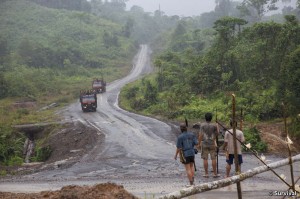
> Penan armed with blowpipes block road as logging trucks owned by the Shin Yang company approach. <
> Rainforest Information Center <
> SURVIVAL INTERNATIONAL -PALM OIL <
> THE ECOLOGIST – PALM OIL, SUSTAINABLE PALMOIL ? <
> 9th Session UN Permanent Forum on Indigenous Issues <
> Indigenous Peoples Issues/Resources – Palm Oil <
Palm oil is an edible plant oil derived from the pulp of the fruit of the oil palm Elaeis guineensis. It should not be confused with palm kernel oil, which is derived from the kernel (seed) of Elaeis guineensis, or with coconut oil, which is derived from the kernel of the coconut palm (Cocos nucifera). Palm oil is naturally reddish because it contains a high amount of beta-carotene (though boiling palm oil destroys the beta-carotene, rendering the oil colourless. Read More: > HERE <
Deforestation occurs for many reasons: trees or derived charcoal are used as, or sold, for fuel or as a commodity, while cleared land is used as pasture for livestock, plantations of commodities, and settlements. The removal of trees without sufficient reforestation has resulted in damage to habitat, biodiversity loss and aridity. It has adverse impacts on biosequestration of atmospheric carbon dioxide. Deforested regions typically incur significant adverse soil erosion and frequently degrade into wasteland.
Disregard or ignorance of intrinsic value, lack of ascribed value, lax forest management and deficient environmental law are some of the factors that allow deforestation to occur on a large scale. In many countries, deforestation is an ongoing issue that is causing extinction, changes to climatic conditions, desertification, and displacement of indigenous people.Read More: > HERE <
Biofuels threaten lands of 60 million tribal people – Demand for biofuels is destroying tribal peoples’ land and lives, according to indigenous representatives at the United Nations Permanent Forum on Indigenous Issues (UNPFII), meeting currently in New York.
A report presented to the UNPFII refers to ‘increasing human rights violations, displacements and conflicts due to expropriation of ancestral lands and forests for biofuel plantations.’ One of the report’s authors, UNPFII chairperson Victoria Tauli-Corpuz, has said that if biofuels expansion continues as planned, 60 million indigenous people worldwide are threatened with losing their land and livelihoods.
Palm oil is one of the most destructive crops used for biofuels. Millions of indigenous people in Malaysia have already been affected by palm oil plantations, and millions more in Indonesia, where over 6 million hectares of oil palm have been planted, mostly on indigenous territory. In Colombia, thousands of families, many of them indigenous, have been violently evicted from their land because of palm oil plantations and other crops.
Malaysia, Indonesia and Colombia all plan to expand their palm oil plantations. Indonesia has announced plans for plantations in Borneo, projected to displace up to 5 million indigenous people, and 5 million hectares, much of it indigenous land, has been set aside for palm oil in Papua. Colombia is planning 6.3 million hectares of plantations, which could affect more than 100 indigenous communities.
‘If the government take our land, what will we have left?’ an indigenous Papuan leader said in an interview with Survival. ‘If there is a plantation, our land will be destroyed.’
Other crops for biofuels include sugar cane, soy, corn, manioc and jatropha, a plant native to Central America. The > Guarani < in Brazil have lost much of their land to sugar cane cultivation, while the government in India is targeting 13.5 million hectares of what it calls ‘wasteland’, much of which is actually indigenous land.
Survival’s director, Stephen Corry, said today, ‘The biofuels boom doesn’t just have consequences for the environment, global food prices or orang-utans – it’s having a devastating effect on tribal people too. The companies feverishly promoting this industry have been perfectly willing to push aside tribal people in their hunger for land.’
The Amazon Rainforest is the world’s greatest natural resource – the most powerful and bio-actively diverse natural phenomenon on the planet. Yet still it is being destroyed just like other rainforests around the world. The problem and the solution to rainforest destruction are both economic. Rainforests are being destroyed worldwide for the profits they yield – mostly harvesting unsustainable resources like timber, for cattle and agriculture, and for subsistence cropping by rainforest inhabitants. However, if land owners, governments and those living in the rainforest today were given a viable economic reason NOT to destroy the rainforest, it could and would be saved. Thankfully, this viable economic alternative does exist. Many organizations have demonstrated that if the medicinal plants, fruits, nuts, oils and other resources like rubber, chocolate and chicle, were harvested sustainably – rainforest land has much more economic value than if timber were harvested or if it were burned down for cattle or farming operations. Sustainable harvesting of these types of resources provides this value today as well more long term income and profits year after year for generations to come.
The Amazon Rainforest has long been a symbol of mystery and power, a sacred link between humans and nature. It is also the richest biological incubator on the planet. It supports millions of plant, animal and insect species – a virtual library of chemical invention. In these archives, drugs like quinine, muscle relaxants, steroids and cancer drugs are found. More importantly, are the new drugs still awaiting discovery – drugs for AIDS, cancer, diabetes, arthritis and Alzheimer’s.
Many secrets and untold treasures await discovery with the medicinal plants used by shamans, healers and the indigenous people of the Rainforest Tribes. So alluring are the mysteries of indigenous medical knowledge that over 100 pharmaceutical companies and even the US government are currently funding projects studying the indigenous plant knowledge and the specific plants used by native shamans and healers.
Long regarded as hocus-pocus by science, indigenous people’s empirical plant knowledge is now thought by many to be the Amazon’s new gold. This untold wealth of the indigenous plants are the true wealth of the rainforest – not the trees. Rich in beneficial nutrients, phytochemicals and active constituents, the rainforest Indians and Indigenous People have used them for centuries for their survival, health and well-being. Yet extracting these secrets from the jungles is no easy task and sadly, this state of affairs may not last long enough into the future for man to unlock all their secrets. Tragically, rainforests once covered 14% of the earth’s land surface; now they cover a mere 6%.
In less than 50 years, more than half of the world’s tropical rainforests have fallen victim to fire and the chain saw and the rate of destruction is still accelerating. Unbelievably, over 200,000 acres of rainforest are burned every day in the world. That is over 150 acres lost every minute of every day. Experts estimate that at the current rate of destruction, the last remaining rainforests could be consumed in less than 40 years. Experts also estimate that we are losing 130 species of plants, animals and insects every single day as they become extinct from the loss of rainforest land and habitats. How many possible cures to devastating diseases have we already lost? > FULL ARTICLE , PLANT DATA BASE, RAINFOREST SUPPORT <
Biodiversity, Heinrich Böll Stiftung – In conclusion, it appears increasingly clear that there are some forms of new energy investment, (both fossil-fuel and so-called “renewable”) that are particularly damaging to the local environment and communities and to our climate. For these reasons, they should be considered too high risk to pursue – especially in developing countries with very weak political and environmental governance. Eni’s plans to develop tar sands and oil palm in Congo fall into this category.
- Download full version of Study > „Energy Futures ? < Eni´s investment in> tar sands (extra heavy oil) < and palm oil in the Congo Basin“ (PDF, 4 MByte, 41 Pages).
- INTERVIEW – Keine Entwarnung: Bedrohung für Gletscher im Himalaya ist real > HERE < & ( IPCC) The Intergovernmental Panel on Climate Change Report.
- BÖLL – GOING GREEN – THE FUTURE HAS BEGUN NOW<
Heinrich Theodor Böll (December 21, 1917 – July 16, 1985) was one of Germany’s foremost post-World War II writers. Böll was awarded the Georg Büchner Prize in 1967 and the Nobel Prize for Literature in 1972. Read More: > HERE <


The demand for palm oil is forecast to double by 2020. To achieve that production increase, 1,160 new square miles will have to be planted every year for 20 years. Indonesia has 26,300 square miles more forest land officially allocated for new oil palm plantations; Malaysia has almost 3,000 square miles more. The expected thousands of square miles of new plantings on the islands of Sumatra and Borneo could kill off the remaining orangutans, rhinos, and tigers.
- Important: Please look at the following links to learn more about Palm Oil and the effect on the Orangutans: An article on the effects of Palm Oil: http://www.guardian.co.uk/environment/2007/apr/04/energy.indonesia
- All interesting Links: : > SAVE THE ORANG UTAN / facebook <
- Some Facts from … > DONT PALM US OFF < :
- Palm oil is found about 40 percent of the food products on our shelves and its rampant cultivation is destroying the Orangutan’s habitat at an alarming rate.
- The United Nations has warned that Orangutans could be extinct within a generation if we don’t act quickly.
- Once palm oil is labelled, consumers can actually drive a market for proper certified sustainable palm oil because they can demand it of manufacturers.
- Watch the Don’t Palm Us Off campaign video and send this page link to your friends!
- Palm Oil in Chocolate, Greenpeace Canada <
- SAVE MOTHER EARTH, SAVE GANGA <
- PALM OIL BLOG AND VIDEOS <
- Economic Benefits ? <
- Saving Rainforest with medical plants <
- Heinrich Böll Stiftung – Tar Sands and Palm Oil in Congo <
- Meet Dont Palm us off , friends fans, at fb <
- Meet Indigenous Peoples Issues and Resources, friends, fans at fb <
- Meet Survival International friends, fans at fb <
- Meet Global Concern, studies, friends, fans at fb <
- Meet The Ecologist, studies, friends, fans at fb <
- Meet Nobel´s Women Initiative, friends, fans at fb <
- Meet ALL PALM OIL GROUPS, Friends, (APOC) Palm Oil Comm.<
#ClimateChange and the Civil #War in #Syria
.@Guardian photographer of the yr is @YannisBehrakis. http://gu.com/p/4f65n/stw Heart-wrenching work on #refugeecrisis
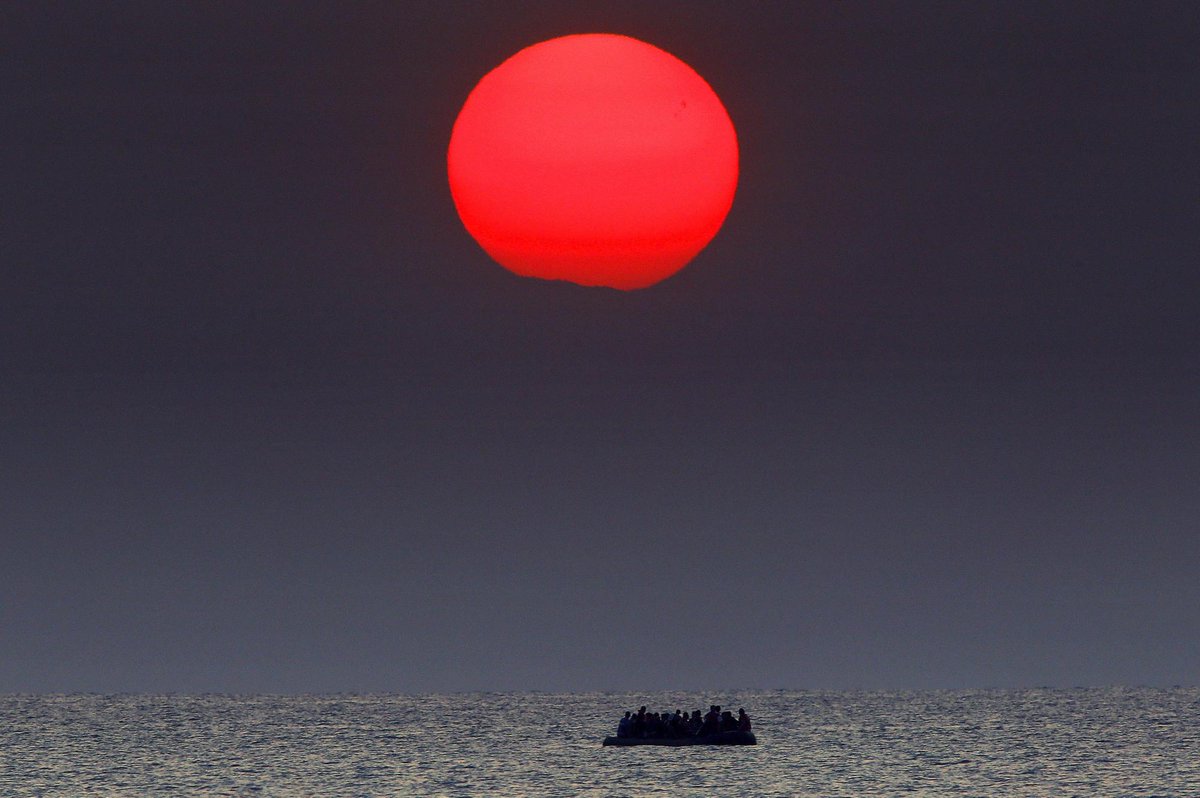
Lotte Leicht @LotteLeicht1 7 Min.Vor 7 Minuten
#Germany: Police arrests suspected people-smuggler over drowning of five #refugees in April
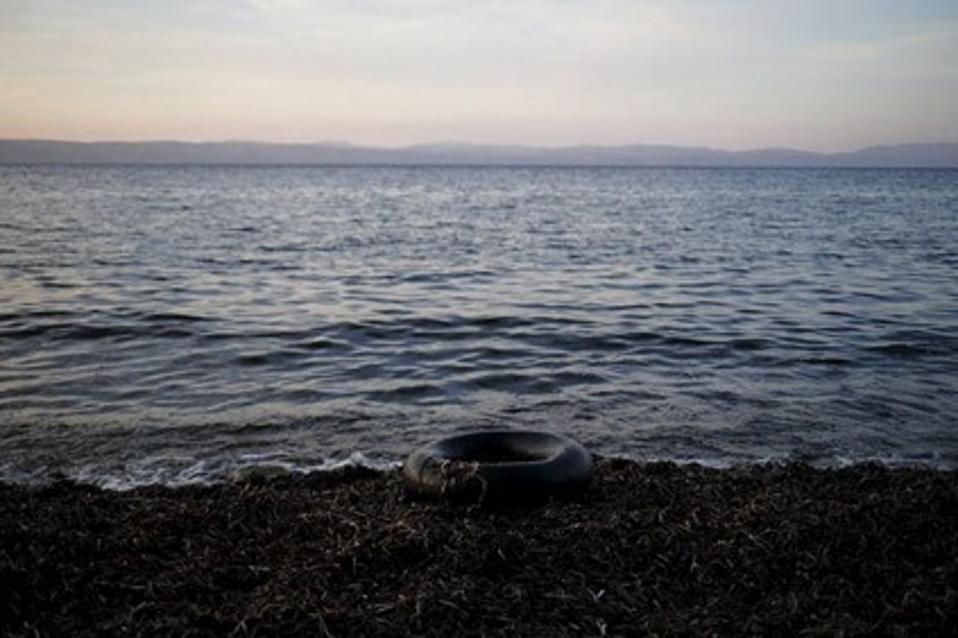
Lotte Leicht @LotteLeicht1 26 Min.Vor 26 Minuten
It’s Christmas, but the dying continues w at least 18 #refugees drowning in the #Aegean Sea
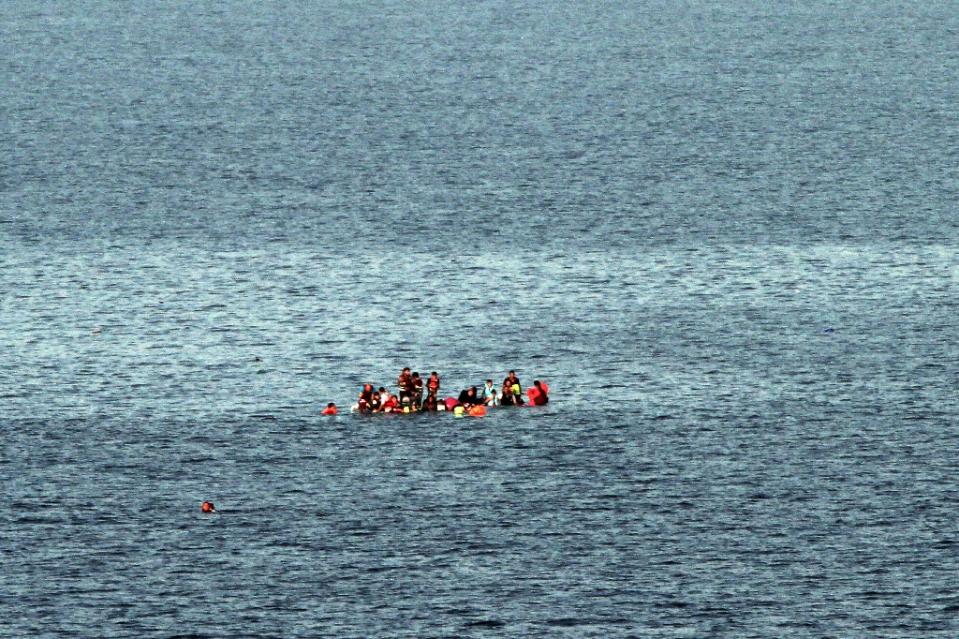
#Refugees make up 1 in 4 of the population in #Lebanon https://t.co/slSbQlKsIi via @BBCWorld and @Refugees pic.twitter.com/RFV6f2Vz1Q
— Lotte Leicht (@LotteLeicht1) 24. Dezember 2015
#ClimateChange and the Civil #War in #Syria
http://opiniojuris.org/2015/12/22/climate-change-and-the-syrian-civil-war/ … @OpinioJuris @Chris_Borgen
#Poland’s new right-wing gov limits important judicial check on its power.http://bit.ly/1ZpqVD7 #EU raises concern

7 decades after World War II: #Refugees in #Europe: then & now. Are we learning from history?
Lotte Leicht @LotteLeicht1 7 Min.Vor 7 Minuten
1946 in #Poland;#refugees rest on their belongings. 2015 in Macedonia;boy wrapped in blanket

Sad. But true. Germany desperately trying to avoid a conflict with Russia which Putin desperately needs to stay in power. #OneSentenceOnEuropeanGeopolitics https://t.co/3Z2ukKzbNa
— Birgit Schmeitzner (@BSchmeitzner) 24. Dezember 2015
Warm congratulations to @Pontifex on #CharlemagnePrize.His moral leadership – inspiration to millions of Europeans pic.twitter.com/MwcqdAInnV
— Dalia GrybauskaitÄ� (@Grybauskaite_LT) 23. Dezember 2015
#Refugees #Denmark MT @hakantee: „Ich bin nicht Polizist geworden, um #Flüchtlinge/n ihr Eigentum zu rauben!“ https://t.co/xlRNIoFe49
— Muschelschloss ☕ ️ (@Muschelschloss) 22. Dezember 2015
Christmas miracle: Rescued #Senegal #migrant wins €400,000 in #Spain’s #Christmas lottery https://t.co/HZuld2E7su pic.twitter.com/qksqWm6783 — Lotte Leicht (@LotteLeicht1) 24. Dezember 2015
President Putin gifted me a page from Gandhi ji’s diary containing Bapu’s handwritten notes. pic.twitter.com/L6xs9KdRq4 — Narendra Modi (@narendramodi) 24. Dezember 2015
Asyl – @mlcaritas fordert „breiten Schulterschluss“ u warnt vor raschen Ansagen über Obergrenzen https://t.co/d3WDOWw6Jk @derStandardat — cariklaus (@KlausSchwertner) 24. Dezember 2015
„Peace cannot wait.The world needs a surge in diplomacy for peace,“ @Refugees chief to #UNSC https://t.co/6g4p0Kf6PH pic.twitter.com/53J1wW8XYn — Lotte Leicht (@LotteLeicht1) 24. Dezember 2015
„We need a ‚New Deal‘ btw the int’l community –#Europe in particular- & #Syria’s neighbours“ https://t.co/6g4p0Kf6PH pic.twitter.com/1xyxmm29eB — Lotte Leicht (@LotteLeicht1) 24. Dezember 2015
Winter looms & 800,000 ppl live in difficult & dangerous conditions at E. #Ukraine frontline https://t.co/7RDOIyygOL pic.twitter.com/6eEF5bKlhD
— Lotte Leicht (@LotteLeicht1) 24. Dezember 2015
#Europe’s other displacement crisis: Survival a struggle in East #Ukraine as winter looms https://t.co/7RDOIyygOL pic.twitter.com/f6Tlav0UgX
— Lotte Leicht (@LotteLeicht1) 24. Dezember 2015
Civilians in Donbas face challenges in access to justice-Thematic Report by #OSCE SMM. More: https://t.co/DfVD4go8sK pic.twitter.com/VglZwApT3w
— СММ ОБСЄ в Україні (@OSCE_SMM) 24. Dezember 2015
No, it’s NOT Christmas eve in Russia but an ordinary working day. PM of India met Putin (with presents though) https://t.co/mV8LjVoJJl
— Birgit Schmeitzner (@BSchmeitzner) 24. Dezember 2015
Christmas eve. For us Germans, #christmascountdown is over. But Russian orthodox christmas is on Jan 7th… #expatlife https://t.co/XMdZw0dUrh
— Birgit Schmeitzner (@BSchmeitzner) 24. Dezember 2015
10 tools for investigative reporting in 2016 | IJNet https://t.co/fBruuUMbbJ
— Hans-Rudolf Scheller (@schellerfamily1) 24. Dezember 2015
2015 in pictures, Jan:#Refugees departure point in #Turkey.Hoping for a better 2016 @nytimes https://t.co/Mwd2lN5b7S pic.twitter.com/lA56lTX8yW
— Lotte Leicht (@LotteLeicht1) 24. Dezember 2015
2015 in pictures, Feb: Child playing cards in bomb shelter in Eastern #Ukraine via @nytimes https://t.co/Mwd2lN5b7S pic.twitter.com/9QBZfMUuAg
— Lotte Leicht (@LotteLeicht1) 24. Dezember 2015
2015 in pictures, June: In #Burma persecution of #Rohingya Muslims continued w impunity https://t.co/Mwd2lN5b7S pic.twitter.com/6CtRYxfuT0
— Lotte Leicht (@LotteLeicht1) 24. Dezember 2015
36 years late but 53 #Iran embassy hostages to get upto $4.4 million each for 444 day siege. https://t.co/Sr8Hmjjf28
— Jon Williams (@WilliamsJon) 24. Dezember 2015
Wishing a Merry Xmas to all from Kiribati to Hawaii n all in-between. May there be peace, joy and love for all.
— ahmed shaheed (@ahmedshaheed) 24. Dezember 2015
Eatidal’s house in #Gaza has been destroyed twice since 2008. #shareyourwarmth with her: https://t.co/0S0cWlOkSR pic.twitter.com/NchpetOVWQ
— UNRWA (@UNRWA) 23. Dezember 2015
Persecution,conflict&poverty drove 1million ppl to seek safety in #Europe in 2015 #UNICEF https://t.co/1fFNJjv5LW @Refugees pic.twitter.com/j7Q4bEElYs
— Lotte Leicht (@LotteLeicht1) 24. Dezember 2015
The holiday gift to myself that I can’t wait to receive is @grconstantine’s ‚Nowhere People‘.https://t.co/uf6e2jXjik pic.twitter.com/eMTzojOmyY
— Lotte Leicht (@LotteLeicht1) 24. Dezember 2015
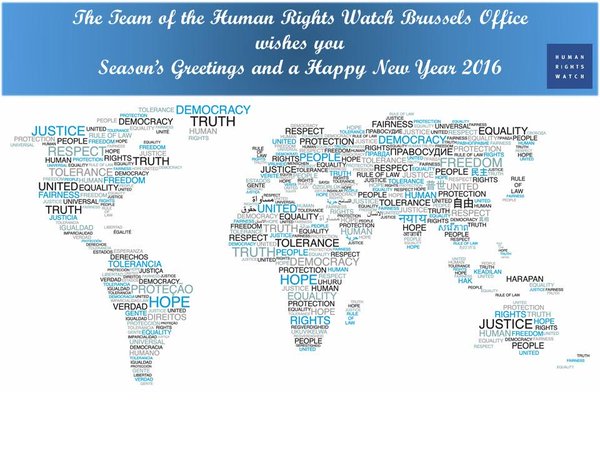
— Lotte Leicht (@LotteLeicht1) 24. Dezember 2015
Workshop for journalists: corporate #lobbying & #COP21 – Paris, 01/12/15 #climatechange
Paris: closed to civil society, open to greenwashers #COP21 #climate https://t.co/UufAr3Qzhs @newint @pascoesabido pic.twitter.com/a4MDZmvInN
— CEO (@corporateeurope) 24. November 2015
Just 4 #COP21 sponsors responsible for 200+ Mt CO2 per yr & 46+ coalplants #BigPollutersOut https://t.co/qLjMzqHtkk pic.twitter.com/2JDWjz7QTs
— CEO (@corporateeurope) 24. November 2015
#Pinocchio2015 Comment #Chevron tente d’imposer le gaz de schiste à l’Argentine et au reste du monde https://t.co/zT2rGfONrn
— Obs. Multinationales (@transnationales) 25. November 2015
Luxembourg Goes in for an Image Makeover https://t.co/uK8h332Inh
— Hans-Rudolf Scheller (@schellerfamily1) 24. November 2015
A sour trade:The Kenyan army is accused of running a sugar-smuggling racket with Somali terrorists https://t.co/rAcGAzDaQV via @TheEconomist
— Hans-Rudolf Scheller (@schellerfamily1) 24. November 2015
How transparent are world’s largest #telecom firms? On avg they score just 4.1 out of 10. https://t.co/cFuHdWqiYT pic.twitter.com/FMaJbOAL32
— Transparency Int’l (@anticorruption) 24. November 2015
$2tn #telecom industry knows a lot about their customers. But what do we know about them? Not enough. New report: https://t.co/cFuHdWqiYT
— Transparency Int’l (@anticorruption) 24. November 2015
#UNCAC Coalition Interview with Luis Arreaga, INL Principal Deputy Asst Secretary, #US Dept of State about #COSP6: https://t.co/I0p8t0xohb
— UNCAC Coalition (@uncaccoalition) 23. November 2015
Workshop for journalists: corporate #lobbying & #COP21 – Paris, 01/12/15 #climatechange https://t.co/ssX1dO3Cx5 pic.twitter.com/X7GPpfOg05
— CEO (@corporateeurope) 24. November 2015
https://storify.com/DeinAyurvedaNet/workshop-for-journalists-corporate-lobbying-cop21-
Climate Investment Funds Monitor 13
Climate Investment Funds Monitor 13 https://t.co/z4DZeHliwd
— Bretton Woods Proj. (@brettonwoodspr) 13. Juni 2016
@CIF_Action 100 groups say no new $$ or investments 4 CIFs; #GCFund is clearly up & running, https://t.co/Cr8Cl4JpBZ pic.twitter.com/tCX32xxNSp
— Karen Orenstein (@KarenOrenstein) 14. Juni 2016
Latest news on the Pilot Program for #Climate Resilience #PPCR, incl call for funds, #Samoa #Haiti project concerns https://t.co/91dhJQuxmD
— Bretton Woods Proj. (@brettonwoodspr) 17. Juni 2016
Read the latest on Scaling up Renewable Energy Program #SREP, incl funding issues, questions on #indigenous peoples https://t.co/IjLQAddLzI
— Bretton Woods Proj. (@brettonwoodspr) 17. Juni 2016
.@Kevinjonheller Enthusiastically Endorses @MarkKersten’s New Book on the ICC https://t.co/NZcRSqwaLg via @opiniojuris
— Opinio Juris (@opiniojuris) 18. Juni 2016
Memorials for My Friend and Colleague, John Jones QC https://t.co/dJGAdXJA0u by @kevinjonheller
— Opinio Juris (@opiniojuris) 18. Juni 2016
Great Rpt about internal debates within OAS over use of Art. 20 of the Democratic Charter Against Venezuela’s Maduro.https://t.co/vtkp3cjmQZ
— Opinio Juris (@opiniojuris) 18. Juni 2016
Read the new article by ICCT Fellow Ingram and @charliewinter on how #ISIS weaponized the media after #Orlando https://t.co/gGdHwcaleK
— ICCT – The Hague (@ICCT_TheHague) 18. Juni 2016
Run, don’t walk, to the internet and buy @MarkKersten’s new book on the #ICC. Hot off @OUPAcademic’s presses. https://t.co/rUTyp69T3t
— Kevin Jon Heller (@kevinjonheller) 18. Juni 2016
ICYMI: My article on the disappointing debate over ISIS and genocide in the Canadian Parliament in @OpenCanada: https://t.co/kEgFrwuriu
— Stephanie Carvin (@StephanieCarvin) 16. Juni 2016
Palestinians Say They Are Negotiating Sea Border With Egypt – ABC News https://t.co/nVYi5mAKbE
— Opinio Juris (@opiniojuris) 17. Juni 2016
Will Killer Robots Get Away with War Crimes? @DailyMail https://t.co/fC1zmfVSeN
— Opinio Juris (@opiniojuris) 17. Juni 2016
UN spec advisor on genocide „appalled“ by „shameful efforts of some pol and rel leaders to manipulate & politicize events in Orlando.“
— columlynch (@columlynch) 17. Juni 2016
France grants citizenship to heroic Bataclan security guard https://t.co/FOzdqVMJdU
— Peter Spiro (@AfterTheState) 17. Juni 2016
Are any ISIS leaders or commanders nationals or dual nationals of ICC states? That could be jurisdictional hook even without UNSC referral
— David Bosco (@multilateralist) 17. Juni 2016
Read the latest on the #Forest Investment Program, incl funding issues, loans vs grants, #Laos consultations https://t.co/QlxFA79NHe
— Bretton Woods Proj. (@brettonwoodspr) 16. Juni 2016
Read the latest on the #Clean Technology Fund, incl funding troubles, #Indonesia #geothermal issues, new #CTF 2.0? https://t.co/NUlG9nlZwc
— Bretton Woods Proj. (@brettonwoodspr) 16. Juni 2016
Kenya, Ethiopia bet on technology transfer – from China – in their railway projects https://t.co/3PszFd7Q2g
— Wits China Africa (@witschinaafrica) 17. Juni 2016
Chinese warship sails through Japan’s Tokara Strait (territorial waters), invokes right of innocent passage. https://t.co/g7czg6jjza…
— Julian Ku 古舉倫 (@julianku) 17. Juni 2016
Top Japan defense official: „We have yet to find effective means to make China abide by international rules.“ https://t.co/ySSKPl9ep0 — Julian Ku 古舉倫 (@julianku) 17. Juni 2016
Top Israeli legal officials: ‘Israel must break through the walls of the legal ghetto’ https://t.co/3MxzdumKcV — Opinio Juris (@opiniojuris) 17. Juni 2016
What constitutes a ‚act of cyber war‘? One senator wants to figure that out https://t.co/KHFXFg6EFa pic.twitter.com/1P9fliaooi
— BI Defense (@BI_Defense) 16. Juni 2016
EU Cash Brings Kosovo War Crimes Court Closer https://t.co/DuS5ufZozZ via @sharethis
— Beth Van Schaack (@BethVanSchaack) 15. Juni 2016
Via @opiniojuris Does #ICJ Have Jurisdiction over #Iran’s Claim Against the US? https://t.co/fYGfnlEJHO #internationallaw #geopolitical — INSCT (@INSCT) 16. Juni 2016
Well, that settles that debate. #cdnpoli @PnPCBC @RosieBarton https://t.co/8CnTApUNF3 — Kristen Pue (@KristenPue) 16. Juni 2016
ISIS Committed Genocide Against Yazidis in Syria and Iraq, U.N. Panel Says https://t.co/ATBccetXhr
— Opinio Juris (@opiniojuris) 16. Juni 2016
Spot-on analysis. | ‚Does ICJ Have Jurisdiction over Iran’s Claim Against US? Actually Maybe It Does https://t.co/NHH3r81uC8 by @opiniojuris
— Tyler Cullis (@TylerCullis) 16. Juni 2016
My latest: Actually, Maybe the ICJ Does Have Jurisdiction over Iran’s Claim Against the U.S. https://t.co/YjZl7X6Kga via @opiniojuris — Julian Ku 古舉倫 (@julianku) 16. Juni 2016
#Singapore, old enemy of int’l human rights law, now embraces int’l law to fight smog. Nice – now sign #ICCPR! https://t.co/On8kB6CQG1 — Sam Zarifi (@SZarifi) 16. Juni 2016
Here is ICJ’s official press release announcing Iran’s action against U.S. https://t.co/4mfVUd0psS
— Opinio Juris (@opiniojuris) 16. Juni 2016
Singapore defends intl legality of its „transboundary haze“ law, says Indonesia shd welcome it. https://t.co/PKhaUwutKx
— Opinio Juris (@opiniojuris) 16. Juni 2016
Looks like they finally pulled the trigger. „Iran files complaint with ICJ to recover $2 billion frozen in U.S.“ https://t.co/JjShSn8w0d
— Opinio Juris (@opiniojuris) 16. Juni 2016
Jamaican AG criticizes US embassy flying rainbow flag at half-staff. https://t.co/vz2oO7QaHg
— Opinio Juris (@opiniojuris) 15. Juni 2016
You might not have tickets to #HamiltonMusical but you can read about Hamilton and #internationallaw @opiniojuris https://t.co/NgsEOslGJI
— Christopher Borgen (@Chris_Borgen) 15. Juni 2016
Outstanding debate map with lots of links to excellent posts on #Brexit & EU & international law (via @OUPIntLaw) https://t.co/8MwpBBE7gx
— Noelle Quenivet (@NoelleQuenivet1) 15. Juni 2016
Alexander Hamilton, the New Republic, and the Law of Nations https://t.co/D0yq9h4vtf via @opiniojuris
— OUP Internat’l Law (@OUPIntLaw) 15. Juni 2016
Equatorial Guinea asks U.N. court to block French case against president’s son https://t.co/KAh3VKgHE3
— Opinio Juris (@opiniojuris) 15. Juni 2016
Global Magnitsky Legislation Clears Another Hurdle In U.S. Senate https://t.co/0lik9I1kXx
— Opinio Juris (@opiniojuris) 15. Juni 2016
UN Authorizes Europe to Seize Libyan Weapons on the High Seas | Foreign Policy https://t.co/BItwQ0jSV0
— Opinio Juris (@opiniojuris) 15. Juni 2016
Israel elected to chair UN committee for first time (GA’s Legal Comm) https://t.co/5sEzRytD2z
— Opinio Juris (@opiniojuris) 14. Juni 2016
Indonesia protests Singapores‘ attempts to prosecute IND nationals for starting forest fires, causing smoke haze. https://t.co/gFFaO0mSDP
— Opinio Juris (@opiniojuris) 13. Juni 2016
Iran to sue US for asset seizure https://t.co/NmqTm2hqef
— Opinio Juris (@opiniojuris) 13. Juni 2016
This is what the conviction of Chad’s former dictator means for African human rights via @monkeycageblog https://t.co/X3tLnzTs6U
— Opinio Juris (@opiniojuris) 12. Juni 2016
@opiniojuris thank for twitting my piece on the continuing legal role for the 1955 US-Iran Treaty of Amity.
— Farshad Kashani (@FarKashani) 10. Juni 2016
6 Ways to Bring Land Expropriation Laws Up to International Standards https://t.co/Vx3D5SoOyL #landrights pic.twitter.com/t0f2VwZhEB
— Neil Sorensen (@NeilSorensen) 15. Juni 2016
#Chinese state-owned companies face greater scrutiny of #EU deals after ruling: https://t.co/CSVVzUAccg | #FDI pic.twitter.com/SH5VeJUcGT
— Thomas van Giffen (@ThomasVanGiffen) 14. Juni 2016
Clean Technology Fund (CTF) https://t.co/BapfOY2XVN
— Bretton Woods Proj. (@brettonwoodspr) 13. Juni 2016
Pilot Program for Climate Resilience (PPCR) https://t.co/WsvjpEQ9hJ
— Bretton Woods Proj. (@brettonwoodspr) 13. Juni 2016
Forest Investment Program (FIP) https://t.co/kamXOH7Y12
— Bretton Woods Proj. (@brettonwoodspr) 13. Juni 2016
Scaling Up Renewable Energy Program (SREP) https://t.co/FvgO9rVeiv
— Bretton Woods Proj. (@brettonwoodspr) 13. Juni 2016
News Lens: Kandadji dam at the brink of a humanitarian disaster https://t.co/eZD2pHiY0K
— Bretton Woods Proj. (@brettonwoodspr) 13. Juni 2016
Climate Investment Funds (CIFs) explained
The World Bank-housed Climate Investment Funds (CIFs) are financing instruments designed to pilot low-carbon and climate-resilient development through multilateral development banks (MDBs). They comprise two trust funds – the Clean Technology Fund (CTF) and the Strategic Climate Fund (SCF). The SCF is an overarching fund aimed at piloting new development approaches. It consists of three targeted programmes: Pilot Program for Climate Resilience (PPCR), Forest Investment Program (FIP) and Scaling up Renewable Energy Program in Low Income Countries (SREP).
The CIFs operate in 72 countries worldwide. As of end December 2015, donors had pledged a total of $8.3 billion to the CIFs: $5.6 billion to the CTF and $2.7 billion to the SCF ($1.2 billion for PPCR, $775 million for FIP and $787 million for SREP). Projects are executed by MDBs: the African Development Bank (AfDB); the Asian Development Bank (ADB); the European Bank for Reconstruction and Development (EBRD); the Inter-American Development Bank (IDB); the World Bank’s middle income arm, the International Bank for Reconstruction and Development (IBRD); and the World Bank’s private sector arm, the International Finance Corporation (IFC).
Under the ‘sunset clause’ the CIFs are due to close once a new climate finance architecture is effective under the United Nations Framework Convention on Climate Change (UNFCCC), through a mechanism such as the Green Climate Fund (GCF).
Buddhists call for strong Paris climate deal to limit warming

Tibet’s ecology needs protecting, not just for Tibetans, but for the health and sustainability of the entire world http://tibet.net/COP21/
Tibetan Parliament Congratulates US House Speaker Paul Ryan http://goo.gl/fb/UaSves
Act NOW #OGP says TI+13 chapters to stop #corruption & deliver #GlobalGoals @helenclarkUNDP @AmbassadorPower
China must now decide whether to abide by UNCLOS obligations to accept tribunal’s ruling on jurisd. https://shar.es/15mY5R via @opiniojuris
My latest: UNCLOS Tribunal Rules Against China (link to full text of award posted) https://shar.es/15mC5N via @opiniojuris
Samedi 30/10/15 à #Bruxelles – conférence CHANGE THE SYSTEM, NOT THE CLIMATE! https://www.climatetjusticesociale.org/ @pablosolon
Welcome @Vinci to @Solutions_COP21, who won’t let pesky protestors stop their airport at Notre Dame de Landes! #NDDL http://www.reporterre.net/Vinci-et-Avril-vedettes-de-l-operation-Solutions-21 …
Forest corruption #Indonesia #PNG #Vietnam local heros speak: „I cry without tears“ @UNFCCC
http://www.transparency.org/news/feature/forest_corruption_communities_fight_back …
In Indonesien wüten seit zwei Monaten Tausende von diesen Bränden, die vor allem auf Brandrodung zurückgehen. Unternehmen machen auf diese Weise schnell und billig Platz für neue Ölpalmen- oder Industrieholzplantagen. In Kalimantan und der benachbarten Insel Sumatra zerstörten die Wald- und Torffeuer bisher 1,7 Millionen Hektar Wald. http://orf.at/stories/2306542/Transparency Int’l @anticorruption
China to prosecute former top Tibet security official for graft http://goo.gl/fb/Azg5Ag
Tibetan Writer Returns Home after 9 years in Chinese Custody http://goo.gl/fb/ycmQ73
He was arrested in 2006 for ‘exposing nation’s security’ by aiding his friend and then Tibetan prisoner Arig Dolma Kyab in sending the latter’s appeal letters to the UN.
He became a novice monk at Gaden Chopheling monastery in Arik, Later he went to Kumbum and Rongwo monasteries to study Tibetan grammar, poetry.
Buddhists call for strong Paris climate deal to limit warming http://goo.gl/fb/L7fymO
The statement from the leaders of over a billion Buddhists worldwide says that the causes of this “environmental crisis” are the use of fossil fuels, unsustainable consumption patterns, lack of awareness and lack of concern about the consequences of our actions.
“We are at a crucial crossroads where our survival and that of other species is at stake as a result of our actions,” the statement says, arguing that the world must move to 100% renewable and clean energy.
The leaders call for a deal in Paris that will limit the rise in global temperatures to 1.5C above pre-industrial levels.
Dein Ayurveda Net @DeinAyurvedaNet
Interview Phicil et Drac – zen méditations d’un canard égoïste http://bit.ly/1Mwf5Ev
Meet Ali, the teenage boy whom Saudi Arabia has sentenced to be crucified. My column http://nyti.ms/1kV84Ru
Awarding #SakharovPrize to @RaifBadawi sends a strong message to #SaudiArabia: Release him & respect free speech
CORRUPTION is the problem PM #Najib must answer critics not jail them Malaysia risks a political meltdown http://gu.com/p/4dnvn/stw
„Europa gehört Vergangenheit an“, sagt Schriftsteller #Haslinger. „Nationale Egoismen“ würden wieder aufleben. http://bit.ly/1KJzCOD
Endlich ist die wichtigste Kôan-Sammlung aus dem 13. Jahrhundert wieder zugänglich.
http://www.randomhouse.de/Buch/Mumonkan-Die-torlose-Schranke/e381451.rhd …
Many thanks to all venerable monks, all our sisters and all our brothers who participated, helped and …
https://www.facebook.com/media/set/?set=a.930888730272839.1073741907.450300778331639&type=3 …
My guess is China will pretend that Article 288 doesn’t exist and continue to refuse to participate. (link to full text of award posted) https://shar.es/15mC5N via @opiniojuris
How Journalism Works, foreign correspondent edition. This is basically not even a joke. HT @kjalee pic.twitter.com/w8A0P1N1au
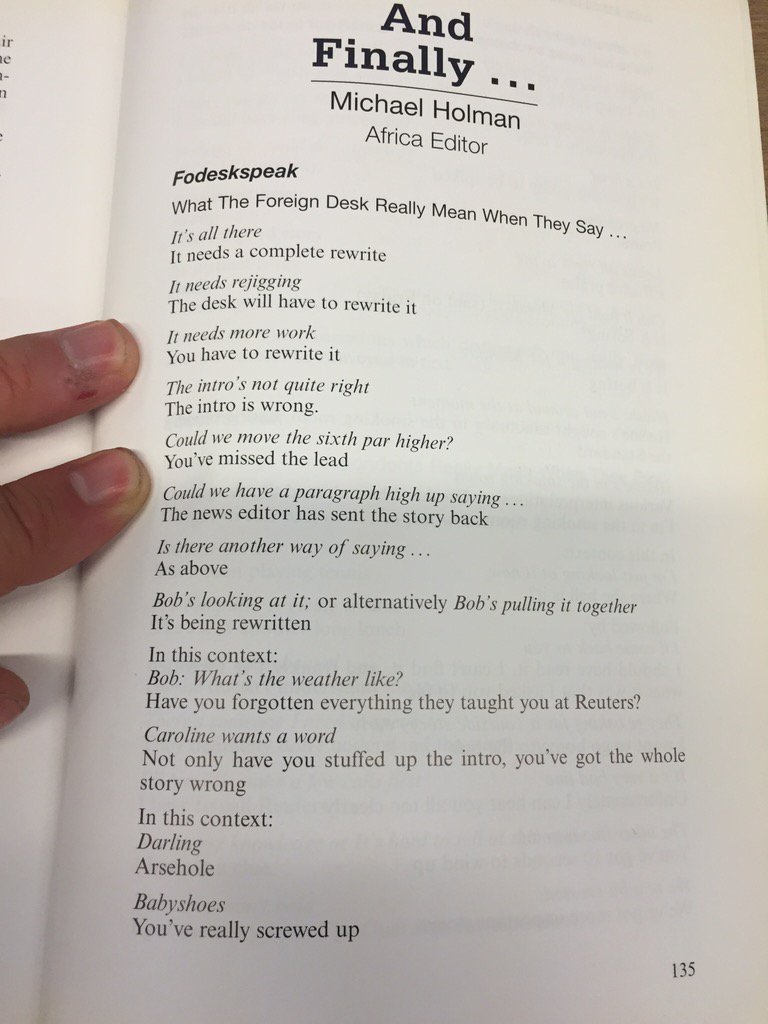
Dein Ayurveda Net @DeinAyurvedaNet
 Wat Thai Dhammaram – Belgium (Waterloo) shared their album.
Wat Thai Dhammaram – Belgium (Waterloo) shared their album.of Wat Thai Dhammaram, Waterloo, Belgium
on Sunday 1st November 2015 between 10.00h to 16.00h.
30a-The Royal Kathina Ceremony@Temple – งานกฐินปี
His Excellency the Ambassador of Thailand to Belgium, EU and Luxembourg was kindly presided over in Kathina ceremony on Sunday 12th Oct 2014.
Many thanks to all venerable monks, all our sisters and all our brothers who participated, helped and supported our Kathina and activities for society hold in Wat Thai Dhammaram – Belgium (Waterloo).
Mamata Banerjee @MamataOfficial
Mamata Banerjee @MamataOfficial

Mamata Banerjee @MamataOfficial
ยินดีต้อนรับคณะพระเดชพระคุ
Mamata Banerjee @MamataOfficial
After the rallies in Bihar, headed to Hyderabad House for 12 bilateral meetings with African leaders. @indiafrica2015 #IAFS
Misrule, Scams & Jungle Raj are things of the past. Bihar wants development & people are placing their faith in NDA. http://nm-4.com/3oo
Excellent article! The Most Basic of Rights | Jacobin by @MeeraKar https://shar.es/15XIzi via @sharethis #right2water @BluePlanetProj #SDGs
Congratulations to @MDACintl – Children with #disabilities and #Roma are often discriminated against in education.
https://twitter.com/MDACintl/status/659812553187442688
Remembering Sukumar Ray on his birth anniversary. His ‚chhorar kobita‘ (poems) set new standards in humour and poetry
Both boys and girls, studying in classes X, XI and XII will get cycles for commuting to schools under this scheme
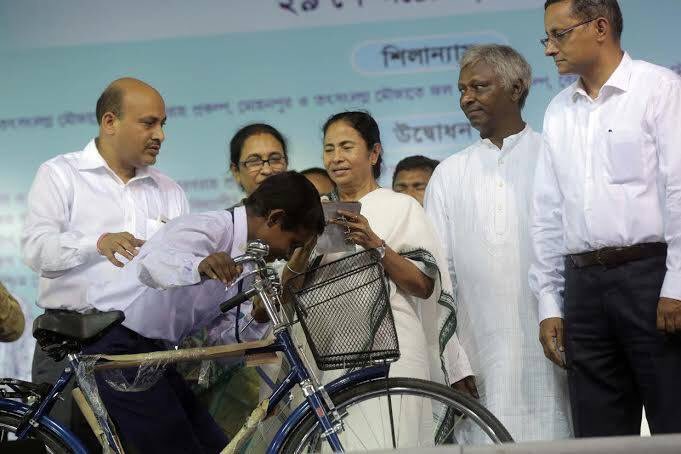

Mikhail Gorbachev: Prophet of Change
http://www.gcint.org http://www.gci.ch
http://www.climatechangetaskforce.org
To respond to combined challenges of security, poverty and environmental degradation to ensure a sustainable and secure future.
In recognition of President Gorbachev’s 80th birthday, the founding President of Green Cross and his lifelong commitment to sustainability, GCI has published a book honouring the former President of the Soviet Union, Mikhail Gorbachev: Prophet of Change.
The publication traces the evolution of Gorbachev’s vision, in particular the origins and outcomes of his environmental agenda, which belong to the important legacy of changes Gorbachev initiated in the Soviet Union and the world.
This anthology, features select speeches and writings by President Gorbachev, as well as tributes from political contemporaries and partners in the environmental and peace movements. The tributes from colleagues and friends – ranging from political heavyweights President George Bush Sr. and Margaret Thatcher to renowned champions of sustainability Maurice Strong and Achim Steiner – reflect the esteem in which Mikhail Gorbachev is held, and the special place he occupies in the history of our times.
Mikhail Gorbachev: Prophet of Change is published by Clairview Books and is avaliable now. For ordering information please visit Amazon or Clairview Books.
„Governments are still not doing enough to protect the environment, countries should adhere to environmental principles to avoid irreparable damage to the planet – it’s five minutes to midnight.“
– Mikhail Gorbachev, Founding President and Member of the Board, Green Cross International
The Future We Want Campaign has been embraced by the United Nations to help promote next June’s “Rio+20” United Nations Conference on Sustainable Development.
A co-founder of the Future We Want campaign is Bill Becker, climate policy expert and member of the Climate Change Task Force.
Green Cross is a supporter of the “Rio+20: The Future We Want” campaign, that will work through public participation to envision how societies in all parts of the world can build a future that promotes prosperity and improves the quality of people’s lives without further degrading the natural environment.
“We need to imagine a different future,” United Nations Secretary-General Ban Ki-moon said. “What would our world look like if everyone had access to the food they need, to an education, and to the energy that is required to develop? What would our communities look like if we created a vibrant, job-rich, green economy? This is the future we want.”
The campaign aims to encourage people everywhere to engage in a global conversation that will be collected and melded into visions of the future, to be exhibited at the Conference in June 2012. Rio+20 will bring together world leaders and thousands of participants representing all sectors of society, including academia, agriculture, business and industry, indigenous peoples, mayors and local authorities, non-governmental organizations, trade unions, women and youth.
Related materials:
UN Conference on Sustainable Development 2012
Future We Want on Facebook and Twitter
Contacts:
Paul Garwood
Director of Communications
Green Cross International
Email: paul.garwood@gci.ch
Mob: +41797760454
Off: +41227891662
Skype: paul.garwood
Website: www.gcint.org
Follow Green Cross International on Facebook, Twitter, Flickr and YouTube
http://www.barentsobserver.com/nature.html
http://www.facebook.com/greencrossint
http://www.facebook.com/road2rio20
http://www.facebook.com/The Climate Change Task Force
https://www.facebook.com/FutureWeWant
http://www.facebook.com/GreenpeaceRussia
http://www.facebook.com/TheVoiceofRussia
http://www.facebook.com/Institute of Modern Russia
http://www.facebook.com/russianow
http://www.facebook.com/Demotivacija.mk
http://www.rferl.org/section/Russia Radio Free Europe
http://www.eurasianet.org Russia by Regions
http://www.euronews.net/nocomment TV without any opinion
http://www.facebook.com/rethinkafghanistan
http://www.facebook.com/India Against Corruption
Green Cross International
Check new 1 minute Green Cross video interview from COP17 in Durban with Mubarick Masawudu, president of Green Cross Ghana, discussing the links between climate change and humanity. http://bit.ly/ru5Wnh
Science on the road to Rio+20 & Innovation Policy: Read our news and analysis about the role of science at next June’s sustainable development meeting. Science at Rio+20 – The Rio+20 UN Conference in June 2012 provides a chance to reflect on science’s contribution to sustainable development since the first Earth Summit 20 years ago, and on how it can contribute most effectively in the future. http://www.scidev.net/en/science and innovation policy/science at rio 20
The coming famine: risks and solutions for global food security – sciencealert – Global funding for agricultural research, public and private, is estimated to total around $40 billion. There is a stark contrast with the $1500 billion the world now spends on weapons. @ComingFamine, twitter Headline issues on the global food crisis and how to avoid it. If you eat or know someone who does, this concerns you… http://paper.li/ComingFamine
News and Issues for Sustainable Development:
Gazprom to boost gas to India from 2016-18 – source Reuters
Afghanistan: Will TAPI Pipeline Be Able to Beat Back the Taliban? – eurasia.net
Missile Defense Dispute: Russia Threatens to Block NATO Supply Route – Antiwar.com
Safe Passage to Cancun – UN Climate Deal
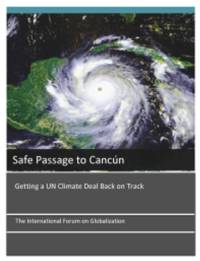
Globalization (or globalisation) describes a process by which regional economies, societies, and cultures have become integrated through a global network of communication, transportation, and trade. The term is sometimes used to refer specifically to economic globalization: the integration of national economies into the international economy through trade, foreign direct investment, capital flows, migration, and the spread of technology. However, globalization is usually recognized as being driven by a combination of economic, technological, sociocultural, political, and biological factors. The term can also refer to the transnational circulation of ideas, languages, or popular culture through acculturation. Read More: >HERE<
The United Nations Framework Convention on Climate Change (UNFCCC or FCCC) is an international environmental treaty produced at the United Nations Conference on Environment and Development (UNCED), informally known as the Earth Summit, held in Rio de Janeiro from 3 to 14 June 1992. The objective of the treaty is to stabilize greenhouse gas concentrations in the atmosphere at a level that would prevent dangerous anthropogenic interference with the climate system. The parties to the convention have met annually from 1995 in Conferences of the Parties (COP) to assess progress in dealing with climate change. In 1997, the Kyoto Protocol was concluded and established legally binding obligations for developed countries to reduce their greenhouse gas emissions. Read More: > HERE <
THE INTERNATIONAL FORUM ON GLOBALIZATION (IFG) is a North-South research and educational institution composed of leading activists, economists, scholars, and researchers providing analysis and critiques on the cultural, social, political, and environmental impacts of economic globalization. Formed in 1994, the IFG came together out of shared concern that the world’s corporate and political leadership was rapidly restructuring global politics and economics on a level that was as historically significant as any period since the Industrial Revolution.
Yet there was almost no discussion or even recognition of this new „free market,“ or „neoliberal“ model, or of the institutions and agreements enforcing this system—the World Trade Organization (WTO), the International Monetary Fund (IMF), the World Bank, the North American Free Trade Agreement (NAFTA) and other such bureaucracies. In response, the IFG began to stimulate new thinking, joint activity and public education about this rapidly rising economic paradigm.
Unique in its diversity, depth, and breadth, the IFG works through an active international board of key citizen movement leaders; a small, dedicated staff; and a network of hundreds of associates representing regions throughout the world on a broad spectrum of issues. Our work is closely linked to social justice and environmental movements, providing them with critical thinking and frameworks that inform campaigns and activities „on the ground.“
The IFG produces numerous publications; organizes high-profile, large public events; hosts many issue-specific seminars; coordinates press conferences and media interviews at international events; and participates in many other activities that focus on the myriad consequences of globalization. During the last few years, the IFG has launched a pioneering program that focuses on alternative visions and policies to globalization that are more just, equitable, democratic, accountable, and sustainable for people and the planet.
COP16 – SOURCE WATCH click here , IFG Utube TV click here
POSITION STATEMENT – The International Forum on Globalization (IFG) promotes equitable, democratic, and ecologically sustainable economies.We were formed in response to widespread concerns over economic globalization, a process dominated by international institutions and agreements unaccountable to democratic processes or national governments. Speaking the language of „free-trade“ and poverty alleviation, organizations like the WTO, the IMF, and the World Bank impose a development model which seems designed to benefit transnational corporations over workers; foreign investors over local businesses; and wealthy countries over developing nations.
When the IFG first presented its globalization critique a decade ago, the economic globalization model was widely accepted. Today, the institutions of globalization are undergoing a crisis of legitimacy. Corporate scandals such as Enron and Worldcom, the failures of IMF and World Bank policies and programs, the recent break down of WTO negotiations, and other events reveal that the benefits of globalization that were promised by its advocates have not come to fruition.
Even the policy consensus that governed development thinking during most of the past two decades, the so-called Washington Consensus, has broken up with notable „defectors“ such as former World Bank chief economist Joseph Stiglitz and the director of the Earth Institute at Columbia University Jeffrey Sachs. From conservative circles, the Meltzer Commission, along with Walter Wriston, Henry Kissinger, and William Simon also have issued strong critiques against Bretton Woods institutions.
But perhaps the greatest indictment against globalization is the unprecedented global citizen movement that has emerged during the last decade, demonstrating that the benefits of globalization have gone to the few at the exclusion of many. This extraordinary alliance brings together numerous diverse groups and perspectives — union members, farmers, landless peasants, people of faith, women’s organizations, youth organizations, environmentalists, AIDS and other health activists, politicians, civil servants, immigrants, peace and human rights organizations, intellectuals, consumer advocates, and many others.
While promoters of globalization proclaim that this model is the rising tide that will lift all boats, citizen movements find that it is instead lifting only yachts. In fact, the actual beneficiaries are obvious. In the United States, for example, during the period of the most rapid economic globalization — the 1990s — the top corporate executives of the largest global companies made salaries and gained options in the tens of millions of dollars (often in the hundreds of millions), while real wages of ordinary workers either remained stagnant or rose insignificantly.
The Institute for Policy Studies (IPS) reports that American CEOs were paid an average of 458 times more than production workers in 2000, up from 104 times in 1991. The degree of wealth concentration of the world’s 475 billionaires is now worth the combined income of the bottom half of humanity.
Meanwhile, the United Nations Development Program’s 1999 Human Development Report revealed that the gap between the wealthy and the poor both within and between countries is growing steadily larger. It notes inequities of the current global trading system as one of the key contributors to this trend. Even the U.S. Central Intelligence Agency (CIA) concurred. In its Global Trends 2015 report, issued in 2000, the CIA maintained that globalization will create „an even wider gap between regional winners and losers than exists today. [Globalization’s] evolution will be rocky, marked by chronic volatility and a widening economic divide…deepening economic stagnation, political instability, and cultural alienation. [It] will foster political, ethnic, ideological, and religious extremism, along with the violence that often accompanies it.“
All over the world, evidence points to the failure of globalization and the so-called „free trade“ policies of the last decade – loss of jobs and livelihoods, displacement of indigenous peoples, massive immigration, rapid environmental devastation and loss of biodiversity, increases in poverty and hunger, and many additional negative effects.
-
IFG PROGRAMS AND ACTIVITIES:
-
CLIMATE CHANGE: THE “COPENHAGEN TO CANCUN CONVENINGS” OF CIVIL SOCIETY NETWORKS TO PRESS INTERNATIONAL INSTITUTIONS TOWARD POSITIVE ACTIONS
-
FALSE SOLUTIONS: PUBLICATIONS SERIES
-
INDIGENOUS RIGHTS: ACTUALIZATION OF THE UN DECLARATION ON THE RIGHTS OF INDIGENOUS PEOPLES (UNDRIP)
-
TRADE & FINANCE: TRANSFORMING GLOBAL RULE-MAKING
-
POPULATION: DOES POPULATION MATTER? BRIDGING THE COMMUNICATIONS GAP BETWEEN KEY COMMUNITIES ON THE IMPORTANT ISSUE OF ADJUSTING TO GLOBAL CARRYING CAPACITY
-
POST CAPITALISM: STEPS TO NEW ECONOMIES OF SUSTAINABILITY, EQUITY, JUSTICE AND PEACE
Climate Refugees – Alternative Energy NOW
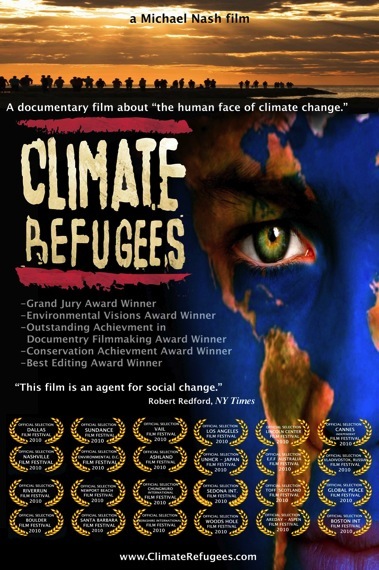
www.ejfoundation.org/No Place like Home
The Global Governance Project defines climate refugees as people who have to leave their habitats, immediately or in the near future, because of sudden or gradual alterations in their natural environment related to at least one of three impacts of climate change: sea-level rise, extreme weather events, and drought and water scarcity.
Although now widely used in the media, the term „climate refugee“ is very controversial. The main concern is that the use of the term „refugee“ for climate or environment-related displaced people lumps them together with the political refugees protected under the Geneva convention which defines a refugee as „a person who owing to a well-founded fear of being persecuted for reasons of race, religion, nationality, membership of a particular social group, or political opinion, is outside the country of their nationality, and is unable to or, owing to such fear, is unwilling to avail him/herself of the protection of that country.“ This, for the purpose of protecting refugees, to many states legally binding definition doesn’t mention environmental reasons at all. Concerns have been voiced that referring to environmental migrants as refugees might weaken the protection of political refugees. And while political refugees cannot turn to their own government for support, environmental migrants often can. The UNHCR was quoted with „Lumping both groups together under the same heading would further cloud the issues and could undermine efforts to help and protect either group and to address the root causes of either type of displacement.“ Read More: > HERE <
A climate refugee is someone displaced by climate change induced environmental disasters. Such disasters are the result of incremental and rapid ecological change and disruption that include increased droughts, desertification, sea level rise, and the more frequent occurrence of extreme weather events such as hurricanes, cyclones, flooding and tornados. The term climate refugee is seen by some as an inappropriate term, and they would rather see it replaced with environmental migrant. Many people have raised objections to the use of the term ‚refugee‘ in a climate context as it becomes mixed up with the legally defined term in the Refugee Convention of 1951. This Convention classifies refugees as those who are fleeing from violence and political intimidation.
So the debate over environmental refugees has been often criticised on the ground that there is no accepted definition of environmental refugees. An excellent article by Architesh Panda written in May 2010 (click on the link to download the pdf file), explores this idea.
The inhabitants of the Carteret Islands are climate refugees caused by sea level rise, and other inhabitants of low lying islands and Island states are also at risk. Tuvalu is especially susceptible to changes in sea level and storm surges and is likely to be another casualty.
The Intergovernmental Panel on Climate Change (IPCC), the international science body that regularly produces assessment reports on climate change, suggested 200 million environmental refugees would exist by 2050. In this projection, the impacts of climate change, including coastal flooding, shoreline erosion and agricultural degradation were seen as major factors contributing to bulk of environmental refugees.
Freshwater – Seawater intrusion into freshwater aquifers in deltaic and non-deltaic areas is an increasing problem with rising sea level, and has been documented in diverse environments such as the arid Israeli coast, the humid Thailand coast, the Chinese Yangtze Delta, the Vietnamese Mekong Delta, and low-lying atolls. In the Yangtze delta, one consequence of saltwater incursion will be that during dry seasons shortages of freshwater for agriculture are likely to be more pronounced and agricultural yields seriously reduced particularly around Shanghai.
Storm Surges – The most destructive element associated with an intense cyclone is storm surge. Storm surge heights depend on the intensity of the cyclone, i.e., very high-pressure gradient and consequent very strong winds and the topography of seabed near the point where a cyclone crosses the coast. Sea level also rises due to astronomical high tide. Elevation of the total sea level increases when peak surge occurs at the time of high tide. Past history indicates that loss of life is significant when surge magnitude is 3 metres or more and catastrophic when 5 metres and above.
Storm-surge flooding in Bangladesh has caused very high mortality in the coastal population (e.g., at least 225,000 in November 1970 and 138,000 in April 1991), with the highest mortality among the old and weak. Shorelines are inherently dynamic, responding to short and long-term variability and trends in sea level, wave energy, sediment supply, and other forcing. Land that is subject to flooding which is at least 15% of the Bangladesh land area is disproportionately occupied by people living a marginal existence with few options or resources for adaptation. The IPCC have found very few studies that indicate benefits of climate change and sea-level rise in coastal and marine systems. Read More > http://www.global-greenhouse-warming.com/climate-refugee.html
This trailer is from the documentary Climate Refugees. A film that illuminates for the first time the human face of climate change and the national security issues of our changing climate./Sun Come Up is a lyrical documentary following the relocation of some of the world’s first climate change refugees, the Carteret Islanders.
On November 25, 2003, the Papua New Guinean government authorized the government-funded total evacuation of the islands, 10 families at a time; the evacuation was expected to be completed by 2007, but access to funding caused numerous delays.In October 2007 it was announced that the Papua New Guinea government would provide two million kina (USD $736,000) to begin the relocation, to be organized by Tulele Peisa of Buka, Bougainville. Five men from the island moved to Bougainville in early 2009 to build houses and plant crops. It is planned to bring another 1700 people over the next five years. CNN has reported that the Carteret islanders will be the first island community in the world to undergo an organized relocation, in response to rising sea levels. The people of the Carteret are being called the world’s first environmental refugees. Read More: > Here <
Sun Come Up; www.suncomeup.com an Intimate Look at the World’s First Climate Refugees. The Carteret islanders are moving. Virtually all of them. They are being forced to relocate their entire society, and give up much of what makes them unique as a people. Not because of war, famine or disease, but because of climate change.
The Carteret islanders did not choose to be poster children in the worldwide debate over global warming, yet they are among the first climate refugees in a trend that could affect as many as 250 million by mid-century, according to the UN. This is perhaps surprising for a culture that doesn’t really have a cash economy, roads or an airstrip. They rarely use electricity, live in huts with sand floors and survive primarily on seafood they harvest themselves and vegetables they grow in gardens. Their home is a small line of atolls in the Pacific, off the northeast coast of Papua New Guinea.
Yet the plight of the 3,000 or so Carterets is slowly gaining international attention, thanks in part to documentary filmmakers Jennifer Redfearn and Tim Metzger, who are in the process of making a feature film about these people called Sun Come Up. A shorter version of the film-in-progress, entitled The Next Wave, recently won the Jury Prize at the Media That Matters film festival in New York City. From the looks of the short film, and the feature trailer, the story seems to be beautifully, and powerfully, told. The story of the Carterets is at once heartbreaking and heartwarming, and perhaps prescient of things to come.
ADVERT: „DRIVE THE CHANGE“
Right now, #cptpp continues in 3rd reading of the House of Commons
Once again,, the #TPP passes third reading effortlessly in the House of Commons. It is not up to the Senate to do proper debate.
https://t.co/9c95yAWXrd— Sujata Dey (@sujata_dey) 17. Oktober 2018
C-79 — An Act to implement the Comprehensive and Progressive Agreement for Trans-Pacific Partnership between Canada, Australia, Brunei, Chile, Japan, Malaysia, Mexico, New Zealand, Peru, Singapore and Vietnam
When you think of the Caribbean, the first thing that comes to mind is probably white sand beaches. But it has more to offer than that, for example, visa-free Schengen travel, lax banking regulations, or low business taxes. Learn more: https://t.co/984IsF4CfA
— Transparency Int’l (@anticorruption) 17. Oktober 2018
Key countries: EU Schengen area, UK, Hong Kong, Singapore, …
@POTUS plans to withdraw US from Universal Postal Union https://t.co/N4uJkDT5IF
— Opinio Juris (@opiniojuris) 17. Oktober 2018
Right now, #cptpp continues in 3rd reading of the House of Commons https://t.co/6xOIA07xK8
— Council of Canadians (@CouncilofCDNs) 15. Oktober 2018
At the Italian Camera dei deputati, @MaudeBarlow from the @CouncilofCDNs reminds audience that the #USMCA does not include #ISDS between Canada and the US. Why must is exist in #CETA pic.twitter.com/jM1qimxBmX
— Sujata Dey (@sujata_dey) 16. Oktober 2018
Missed IMF-@WorldBank meetings last week?
Read our #DispatchAM2018 covering issues as the threat of climate change and debt crises, Human Capital Index or the repression of CSOs @IMFNews @PeoplevsIMFWB @eurodad @ActionAidUK https://t.co/whgAQepA8u
— Bretton Woods Proj. (@brettonwoodspr) 17. Oktober 2018
T-MEC? Camus? New trade deal tests creativity with acronyms https://t.co/LKgHL6W25q via @WSJ pic.twitter.com/70B0gSePNB
— Opinio Juris (@opiniojuris) 17. Oktober 2018
No: 274, 15 October 2018, Press Release Regarding the Visit of the Council of Europe Commissioner for Human Rights Ms. Dunja Mijatovic to Turkey / Rep. of Turkey Ministry of Foreign Affairs https://t.co/iXuEZxIowR
— Dunja Mijatovic (@Dunja_Mijatovic) 16. Oktober 2018
At a time when other countries and corporations are questioning their relationship with #SaudiArabia due to the #YemenConflict, human rights violations, executions and now #Khashoggi, #Bangladesh has decided this is the right time to sign a defence deal with the Kingdom
— Toby Cadman (@tobycadman) 16. Oktober 2018
The #JamalKhashoggi Case: Suspects Had Ties to #Saudi Crown Prince@nytimes has confirmed independently that at least 9 of 15 suspects identified by Turkish authorities worked for the Saudi security services, military or other govt ministrieshttps://t.co/f341cNlZsU
— Lotte Leicht (@LotteLeicht1) 17. Oktober 2018
PRESS RELEASE:
Abudujilili Supi, an ethnic Uyghur is now under direct threat of deportation from the United Arab Emirates.
Supi would almost certainly be sent to an internment camp, or worse, if returned, and risk torture.https://t.co/U7OiEP26sn
— WorldUyghurCongress (@UyghurCongress) 27. September 2018
❤️☕️🌹#Istanbul pic.twitter.com/7AnnSm2yil
— Dunja Mijatovic (@Dunja_Mijatovic) 16. Oktober 2018
As #China clamps down, #internet users find it harder to scale “#GreatFirewall”
— claudio tecchio (@DossierTibet) 15. Oktober 2018
Good news : #US to close more #ConfuciusInstitutes
— claudio tecchio (@DossierTibet) 15. Oktober 2018
Wine from #China – why not? My kind of #research & networking! @ArnolfiniArts @BristolChina pic.twitter.com/ESivSvHjH0
— Amy Man (@_Amy_Man) 10. Oktober 2018
Text of #investment protection provisions of the new #NAFTA — #Chapter14 of #USMCA. #ISDS #investorstate https://t.co/pU4hEvAQ2a
— Int’l Investment Law (@InvestmentLaw) 1. Oktober 2018
IPES-Food is excited to announce the release of its newest report!
.@ipesfood first report (https://t.co/0yuVLoLvxK) described how industrial food systems are locked-in by many barriers. Our new report (https://t.co/8EbX3OPpVR) shows 7 examples of #agroecological systems that managed to break away from those lock-ins & spark a transition #CFS45 pic.twitter.com/Y9wAn9BphX
— Olivier De Schutter (@DeSchutterUNSR) 15. Oktober 2018
IPES-Food is excited to announce the release of its newest report! „Breaking away from industrial food and farming systems: Seven case studies of agroecological transition“ https://t.co/wniDVyaaTb
Released at @FAO @UN_CFS #CFS45
@UNSCN @WFP
#Agroecology #WFD2018 pic.twitter.com/PKCyK29D7G— IPES-Food (@IPESfood) 15. Oktober 2018
After #AMBali2018 we launch our #DispatchAM2018 analysing meetings, communiques and other developments, including the launch of the Human Capital Index, IMF and World Bank capital increase and raising concerns about climate change and debt crises https://t.co/whgAQepA8u pic.twitter.com/gofXFjxZ4a
— Bretton Woods Proj. (@brettonwoodspr) 16. Oktober 2018
It’s Time to Take Palestine v. United States of America Seriously https://t.co/hsQ4utFddP
— Opinio Juris (@opiniojuris) 16. Oktober 2018
According to the VCDR a diplomatic mission may only be established on the territory of “the receiving state.” This implies that the receiving state has sovereignty. Instead the U.S. has put its embassy in disputed territory, the eastern half of which is also occupied territory.
Tea consumption per person (kg per year)
Turkey: 3.1
UK: 1.9
Russia: 1.3
Egypt: 1
Japan: 0.96
Saudi: 0.89
Australia: 0.74
UAE: 0.72
Germany: 0.69
China: 0.56
Canada: 0.5
Indonesia: 0.45
India: 0.32
US: 0.22
France: 0.2
Israel: 0.2
S Korea: 0.16
Italy: 0.14
Brazil: 0.01(UN FAO)
— The Spectator Index (@spectatorindex) 17. August 2018
THE REFUGEE’S RIGHT TO RETURN HOME
The developed nations must accept that strategies of ignoring the plight of refugees or containing them in what are effectively open prisons will simply not work. Sooner or later the camps will flow over and cross borders, bringing desperate people … https://t.co/du3n5F5Wgt
— Burma Campaign UK (@burmacampaignuk) 2. Juli 2018
.@LotteLeicht1 “Today’s crises from Syria to Myanmar are marked by alarming disregard for int’l law, & civilians are bearing the brunt of atrocities”
— Virginie Amato (@VirginieAmato) 3. Juli 2018
“A dedicated, high-level expert is urgently needed to better translate #EU policy commitments into effective action to prevent violations and ensure justice when they occur”https://t.co/DsbIU0O50q
— Virginie Amato (@VirginieAmato) 3. Juli 2018
It’s always heart-rending to leave Yangon because the plane flies over the unmistakable circle-of-hell panopticon that is Insein Prison, home to our innocent @Reuters colleagues Wa Lone and Kyaw Soe Oo for over six months now. Bye, guys. #FreeWaLoneKyawSoeOo pic.twitter.com/cxhnhwcvAZ
— Andrew RC Marshall (@Journotopia) 2. Juli 2018
UNSG @antonioguterres is in #Bangladesh, *applauding* Hasina and AL govt. for sheltering Rohingya refugees. Meanwhile, AL student wing BCL thugs are brutalising general students across the country. What recourse for Bangladeshi citizens in their own country? pic.twitter.com/qtZqjXNxwi
— Tasneem Khalil (@tasneem) 2. Juli 2018
This #Myanmar, 2018
Journalism is NOT a crime.#FreeWaLoneKyawSoeOo https://t.co/0urZB0ZjPK
— Lotte Leicht (@LotteLeicht1) 2. Juli 2018
This is the moment Fardowso spoke to her mother for the first time in 16 years. She fled to #Kenya from #Somalia and lost contact with the rest of her family. Helping Fardowso to reconnect with her family is our #MondayMotivation. pic.twitter.com/hK7bADMudw
— ICRC Africa (@ICRC_Africa) 2. Juli 2018
University of #Michigan was reported to have received a gift of $2.5 million to establish a Khyentse Gendun Chopel Professorship of Tibetan Buddhist Studies,described as the largest endowment dedicated to the study of #Tibetan Buddhism
— claudio tecchio (@DossierTibet) 2. Juli 2018
Head of Iran’s Civil Defense Organization General Gholam Reza Jalali calls climate changes in the country „suspicious“, suggests Iran’s enemies are stealing clouds to prevent rainfall +snowfall #NotTheOnion
— Golnaz Esfandiari (@GEsfandiari) 2. Juli 2018
The tech companies that are supporting state surveillance in Xinjiang have global ambitions, and already these technologies are being sold in places from Ecuador to Ethiopia. @meghara argues powerfully that what is happening now in Xinjiang should matter to us all. pic.twitter.com/5N2otaWI8Q
— Elsa B. Kania (@EBKania) 2. Juli 2018
 Lotte Leicht
Lotte Leicht 





 False_SolutionsCOP21 @Solutions_COP21
False_SolutionsCOP21 @Solutions_COP21 


 Dein Ayurveda Net @DeinAyurvedaNet
Dein Ayurveda Net @DeinAyurvedaNet  Damon Wake @damonwake
Damon Wake @damonwake  Narendra Modi @narendramodi
Narendra Modi @narendramodi  Brent Patterson @CBrentPatterson
Brent Patterson @CBrentPatterson  ERRC @ERRCtweets
ERRC @ERRCtweets 
